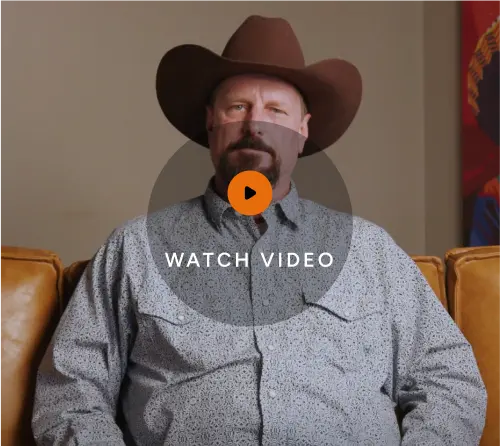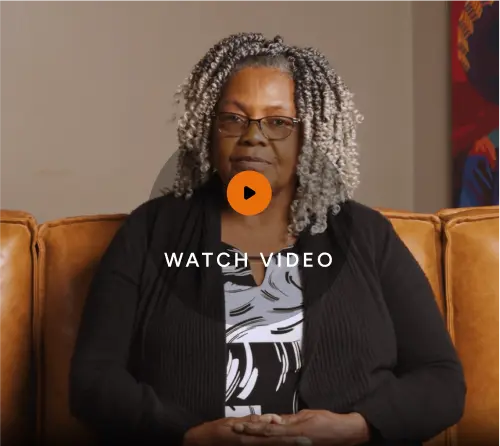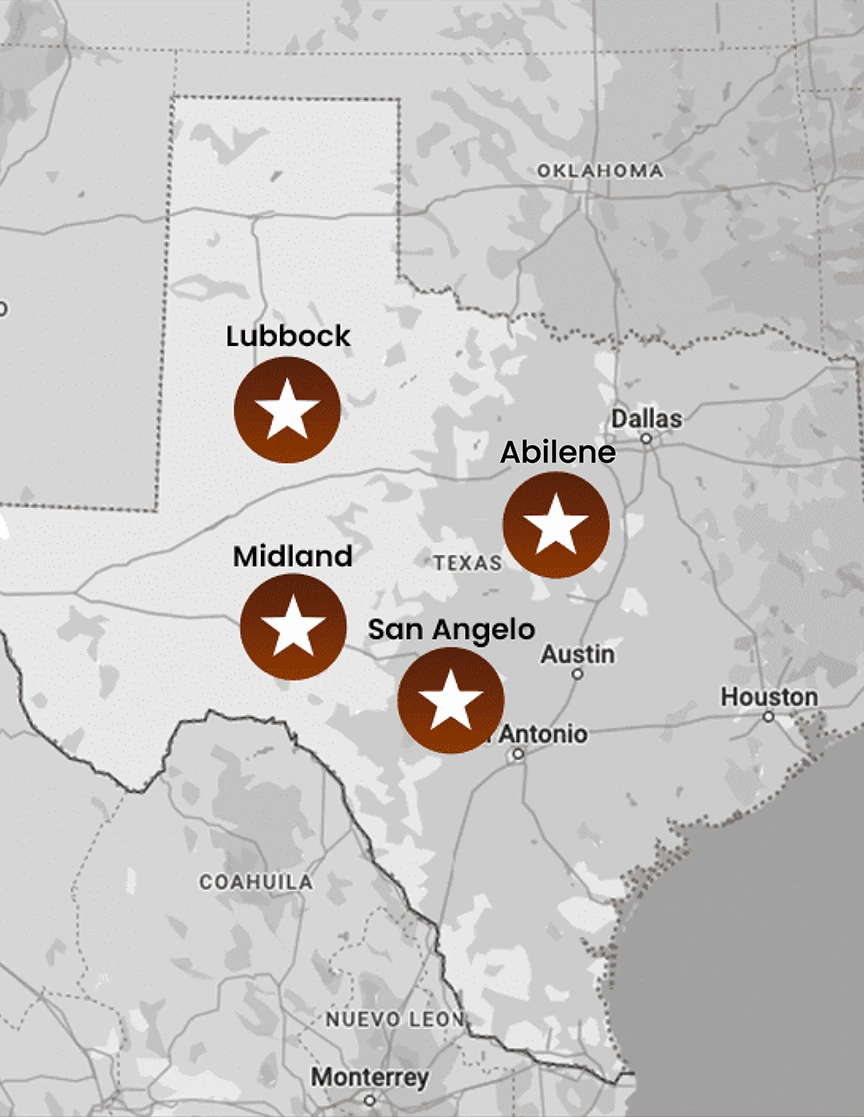The average post-concussion syndrome settlement value in a car accident in Texas ranges from $20,000 to $100,000 or more, depending on the specifics of the case. The exact amount depends on a number of factors, including:
- Severity of the injury
- Medical costs
- Lost wages
- Pain and suffering
- Insurance policy limits
- Emotional distress
- Negligence of the at-fault party
These factors play a significant role in determining the final settlement value for post-concussion syndrome cases in Texas. Contact Keith & Lorfing for a free consultation to learn more about your specific situation and potential compensation.

Experiencing ongoing concussion symptoms after an accident in Texas? Let our Abilene car accident lawyer help you pursue a fair settlement value to cover your medical expenses and recovery.
Find out moreNeed a settlement for concussion in a car accident?
If you suffered a concussion in a car accident in Texas, you might be eligible for compensation to cover your medical expenses, lost wages, and more. However, to file a claim, you must meet specific requirements:
- You must file within the Texas statute of limitations: Texas law allows two years from the date of the crash to file a personal injury claim.
- You must be injured from the crash: Documented medical evidence, such as a diagnosis of a concussion, is essential for pursuing compensation.
At Keith & Lorfing, our experienced attorneys provide personalized advice tailored to your situation.
Whether you’re dealing with medical bills, ongoing symptoms, or lost income, we’re here to help. Take the first step toward justice with a free consultation to discuss your claim.
- Call us at (325) 480-8100
- Visit our Contact page
Types of concussion settlements in a car accident
Securing a fair settlement for concussion-related injuries from a car accident involves knowledge of the various compensation types available. Below are common categories of concussion settlements in Texas:
Average pain and suffering settlement for a concussion
The average pain and suffering settlement for a concussion in Texas ranges from $15,000 to $100,000. This compensation accounts for the physical discomfort and emotional distress experienced due to the injury. Factors influencing this amount include the severity of symptoms and their impact on daily life.
Concussion and PTSD settlements
The typical concussion and PTSD settlements are between $10,000 and $100,000. These amounts reflect the combined impact of physical injury and psychological trauma resulting from the accident. The exact figure depends on factors such as the persistence of symptoms and the degree of emotional distress.
Mild concussion settlement value
The average mild concussion settlement value in Texas is between $5,000 and $10,000. This range typically applies to cases involving minimal symptoms and a short recovery period. Settlements may also consider medical expenses, temporary disruptions to daily activities, and any lost wages incurred during recovery.
Post traumatic vision syndrome settlement
In Texas, an average post-traumatic vision syndrome settlement is between $30,000 and $1 million. This wide range reflects the varying severity of vision impairments following a concussion. Settlements consider factors like the extent of vision loss and its impact on the victim’s quality of life.
Additional reading: The 10 most common car accident symptoms
Factors influencing the average settlement for a concussion in a car accident
Each of these factors evaluates how the injury impacts the victim’s medical needs, financial stability, and overall quality of life. Now, let’s take a closer look into these factors:
Severity of the Injury
A mild concussion may result in temporary symptoms like headaches and dizziness, leading to lower settlements. However, severe concussions or cases involving post-concussion syndrome can lead to long-term cognitive and neurological issues, substantially increasing the payout.
For example, a victim with memory problems, difficulty concentrating, or persistent migraines stemming from a concussion may require years of medical treatment. These long-term effects increase medical costs and impact lost wages and pain and suffering compensation, resulting in a much higher settlement than someone who recovers fully within a few weeks.
Medical Costs
These costs include emergency room visits, diagnostic imaging like CT scans or MRIs, follow-up appointments, rehabilitation, and any medication prescribed to manage symptoms. For example, someone who undergoes multiple brain scans and attends months of cognitive therapy will have significantly higher medical costs than a person treated with over-the-counter medications and rest.
Lost Wages
Concussions often require time off work, particularly for individuals in physically demanding jobs or roles that require concentration. Lost wages are calculated based on the time missed due to the injury and, in severe cases, may also include diminished earning capacity.
For instance, a construction worker suffering from balance issues due to a concussion might be unable to return to work for weeks or months, resulting in significant lost income. Similarly, an office worker experiencing cognitive issues may need to transition to a lower-paying role, further increasing the settlement amount to account for reduced earning potential.
Pain and Suffering
Pain and suffering compensation addresses the physical pain and emotional distress caused by the concussion. These damages are often calculated using a multiplier based on the severity and duration of symptoms.
For example, a victim suffering from daily migraines and light sensitivity may receive a higher settlement compared to someone with mild headaches that resolve quickly. Pain and suffering damages recognize how the injury affects the victim’s quality of life, including sleep disturbances, difficulty focusing, or anxiety about future health complications.
Insurance Policy Limits
The at-fault driver’s insurance policy limits determine the maximum compensation available under their liability coverage. In Texas, the minimum liability coverage for bodily injury is $30,000 per person, but this may not cover the full extent of damages in severe cases.
For example, if medical costs and lost wages total $50,000 but the at-fault driver’s policy only covers $30,000, the remaining $20,000 may need to come from the victim’s uninsured/underinsured motorist coverage or other sources.
Emotional Distress
Concussions often cause significant emotional distress, including anxiety, depression, or PTSD. These damages are separate from pain and suffering and address the psychological impact of the injury on the victim’s life.
For example, someone who develops a fear of driving or experiences ongoing panic attacks after the accident may require therapy, which increases the settlement amount. Documented therapy sessions or evaluations from mental health professionals can help substantiate emotional distress claims.
Negligence of the At-Fault Party
The negligence exhibited by the at-fault driver also affects the settlement value. Reckless behaviors like speeding, drunk driving, or texting while driving can increase compensation, particularly if punitive damages are awarded.
For instance, if a driver was texting and caused the accident, their negligence could result in a higher settlement to account for the reckless behavior. Strong evidence, such as police reports or witness statements, is essential to prove negligence and maximize compensation.
If a concussion injury has left you with lasting effects, our Midland car accident lawyer is here to help you secure the settlement you deserve.
Find out moreMedical evidence in a concussion lawsuit settlement
It substantiates the severity of the injury, links it to the accident, and demonstrates the ongoing impact on the victim’s life. Below are the key elements of medical evidence in such cases.
- Diagnostic Tests and Evaluations: Diagnostic tools like CT scans, MRIs, and neurological exams confirm the presence and extent of a concussion. These tests are best in proving the injury and showing its correlation with the accident. Comprehensive evaluations by neurologists or specialists further validate the diagnosis.
- Expert Medical Testimony: Expert witnesses, such as neurologists or concussion specialists, can explain the injury’s long-term effects and its impact on the victim’s daily life. Their testimony helps clarify tough medical details, ensuring the court or insurance company understands the injury’s full extent and consequences.
Strong medical evidence is essential to maximize a concussion lawsuit settlement and demonstrate the ongoing challenges faced by the victim.
How to maximize your concussion car accident settlement amount
From seeking immediate medical attention to working with our experienced attorney, each action you take can significantly impact the amount you recover.
Here’s how to get the most out of your settlement.
- Seek immediate medical attention: Visit a doctor right after the accident, even if symptoms seem mild. Prompt medical care documents your injury and creates a record connecting it to the accident.
- Follow your treatment plan: Adhere to your doctor’s recommendations for medication, therapy, or follow-up visits. Failing to do so may weaken your claim and reduce your settlement.
- Gather detailed evidence: Keep copies of diagnostic tests, medical bills, and other records. Photos of your injuries or accident scene strengthen your case further.
- Document the impact of your injury: Maintain a journal detailing your symptoms, pain levels, and how the concussion has affected your daily life. This supports claims for pain and suffering compensation.
- Avoid speaking to insurance adjusters: Insurance companies may try to minimize your claim. Direct all communication to your attorney to avoid making statements that could harm your case.
- Hire our experienced attorney: Our attorneys at Keith & Lorfing specialize in concussion cases. We can handle negotiations, gather evidence, and fight for your deserved compensation.
- Track all expenses: Record medical costs, lost wages, and other related expenses. These details ensure all financial losses are included in your settlement demand.
- Don’t rush to settle: Avoid accepting an early settlement offer without consulting an attorney. Early offers are often lower than what you are entitled to and may not cover future medical needs.
The process for a car accident concussion settlement
Settling for a car accident concussion involves a series of steps designed to ensure you receive fair compensation for your injuries and losses. Below are the key steps in the process:
- Seek medical evaluation immediately: Visit a doctor right after the accident to diagnose your concussion and establish a medical record.
- Report the accident to the police and insurance company: File a police report and notify your insurer about the crash. These records are essential for building your case and initiating the claims process.
- Collect evidence: Gather photos of the accident scene, medical records, test results, and any other documentation related to your injury and the crash. Evidence strengthens your claim and supports your settlement demand.
- Consult with our experienced attorney: Our skilled car accident lawyers will evaluate your case, calculate your damages, and guide you through the settlement process to ensure you don’t settle for less than you deserve.
- Negotiate with the at-fault driver’s insurer: Our attorneys will handle discussions with the insurance company to seek a fair settlement. This includes presenting evidence and countering low offers.
- Track all expenses: Document medical bills, lost wages, and other costs resulting from the accident. These details ensure that your settlement covers all financial losses.
- File a lawsuit if negotiations fail: If a fair settlement cannot be reached, your attorney may file a lawsuit and prepare for court. This step often leads to a more favorable resolution, even before trial.

Texas car accident laws affecting concussion settlement amounts
These laws outline drivers’ responsibilities, victims’ rights, and the processes for seeking compensation. Below are key legal factors that influence settlement amounts.
No-Fault/Comparative Fault
Texas follows a modified comparative fault system, which means a victim can recover compensation even if partially at fault for the accident, as long as their fault does not exceed 50%. However, the compensation is reduced by the percentage of fault assigned to the victim.
For example, if a concussion victim is awarded $50,000 but is found 20% at fault for the accident, they will only receive $40,000. If the victim is more than 50% at fault, they are barred from recovering compensation. This system emphasizes the importance of gathering strong evidence to minimize fault and maximize settlement amounts.
Statute of Limitations
Under Texas law, victims have two years from the car accident date to file a personal injury lawsuit. Failing to meet this deadline results in losing the right to seek compensation.
The statute of limitations impacts settlement amounts because delays in filing can weaken a case. Over time, evidence may be lost, and witness recollections may fade. For example, if a victim waits 18 months to initiate their claim, it may be more challenging to prove the connection between the accident and the concussion.
Mandatory Insurance Coverages
Texas requires drivers to carry minimum liability insurance coverage of:
- $30,000 for bodily injury per person
- $60,000 for bodily injury per accident
- $25,000 for property damage
These limits set a baseline for compensation, but they may not cover all damages in severe concussion cases. Victims can turn to uninsured/underinsured motorist (UM/UIM) coverage, which is often included in auto insurance policies unless explicitly waived in writing.
For example, if a concussion case involves $75,000 in damages but the at-fault driver only has $30,000 in coverage, UM/UIM coverage can bridge the gap. Understanding these coverages ensures victims pursue all available sources of compensation.
Punitive Damages
In cases involving gross negligence, such as drunk driving or excessive speeding, victims may seek punitive damages. Texas caps punitive damages at $200,000 or twice the amount of economic damages plus non-economic damages up to $750,000, whichever is greater.
For example, if a concussion victim’s economic and non-economic damages total $400,000, punitive damages may reach up to $800,000. These damages aim to punish reckless behavior and deter similar actions, significantly increasing the settlement amount.
Police Reporting Requirements
Texas law mandates that car accidents involving injury, death, or property damage exceeding $1,000 be reported to law enforcement. The resulting police report provides an official account of the crash, including fault determination, which is vital for concussion cases.
For example, a police report indicating the other driver ran a red light strengthens the victim’s case and increases the likelihood of a favorable settlement. Without this report, victims may face challenges proving liability, reducing the potential settlement.
Impact of Medical Evidence
While not a law, Texas courts heavily rely on medical evidence to determine settlement amounts. Victims must provide detailed records, including diagnostic tests like CT scans or MRIs, to prove the concussion’s severity and its connection to the accident.
For instance, a victim with documented post-concussion syndrome requiring months of therapy will likely receive a higher settlement than someone with minimal symptoms and no ongoing treatment. Strong medical evidence ensures victims receive compensation for both current and future medical needs.
Challenges in pursuing a post-concussion syndrome car accident settlement
Securing a settlement for post-concussion syndrome (PCS) can be challenging due to the unique nature of traumatic brain injuries. These challenges often require the guidance of our skilled personal injury attorney to ensure fair compensation for your head injury.
Dealing with Insurance Companies
Insurance companies may minimize payouts by questioning the severity of PCS or linking symptoms like blurred vision or headaches to pre-existing conditions. A personal injury attorney can counter these tactics with medical evidence such as MRIs, or detailed doctor reports to prove the injury’s connection to the accident.
Delayed Symptoms
PCS symptoms, such as memory loss or cognitive disruption, may not appear until days or weeks after the accident, complicating claims. Insurers often dispute delayed symptoms. Early evaluation by a doctor may reveal subtle signs of a traumatic brain injury, strengthening the case as symptoms persist during recovery.
Proving the Injury
Concussions and PCS are “invisible injuries,” making them harder to prove. Detailed medical documentation, including MRIs and neurological assessments, is critical.
A doctor’s testimony about serious injuries, missed work, and long-term effects ensures an accurate estimate of how much compensation you deserve.
Suffered a traumatic brain injury due to someone else’s negligence? Contact our San Angelo car accident lawyer to maximize your post-concussion syndrome settlement value in Texas.
Find out moreHow our experienced Texas personal injury lawyers can help
If you’ve suffered a concussion or post-concussion syndrome from a car crash in Texas, our experienced personal injury attorneys can help you pursue the compensation you deserve. Every mild or severe concussion requires careful evaluation to determine the settlement payout you may be eligible to receive.
Call us today to speak with our experienced personal injury attorney who can help you sort out your options and recover the compensation you deserve.
- Give us at (325) 480-8100
- Visit our Contact page for more information on injury law.



